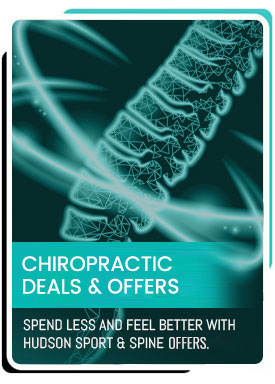Osteoarthritis Treatment Specialist in Hoboken, NJ
Hudson Sport & Spine provides personalized osteoarthritis treatment to help manage pain, improve mobility, and enhance joint function. Dr. Todd Givens, DC, and his team use advanced therapies and rehabilitation techniques to support long-term joint health. Whether you’re experiencing stiffness, swelling, or discomfort, we offer effective solutions tailored to your needs. For more information, contact us today or schedule an appointment online. We are conveniently located at 70 Hudson Street, Suite 2B, Hoboken, New Jersey 07030.




Table of Contents:
What causes osteoarthritis flare-ups?
How can I stop osteoarthritis from getting worse?
What not to do with osteoarthritis?
At what stage is osteoarthritis considered a disability?
Osteoarthritis flare-ups can be triggered by various factors, leading to increased joint pain, stiffness, and discomfort. Understanding these triggers and adopting effective management strategies can help minimize symptoms and improve overall joint health. Factors such as physical activity, weather changes, stress levels, diet, and adherence to treatment plans all play a role in the frequency and severity of flare-ups. By identifying personal triggers and making necessary lifestyle adjustments, individuals can better manage their condition and maintain mobility.
Understanding Triggers and Management Strategies:
● Physical Activity and Joint Stress: Engaging in the right type of exercise can help strengthen muscles around the joints without causing excessive stress. Low-impact activities promote flexibility and reduce the risk of flare-ups.
● Weather-Related Symptoms: Changes in temperature and humidity can worsen symptoms. Adjusting daily routines, using heat therapy, or wearing protective clothing can help alleviate discomfort.
● Stress Management: Increased stress can intensify osteoarthritis symptoms. Practicing relaxation techniques, mindfulness, or seeking professional support can help manage stress levels effectively.
● Nutritional Guidance: A balanced diet with anti-inflammatory foods can support joint health. Identifying and avoiding dietary triggers may reduce the severity of flare-ups.
● Weight Management: Maintaining a healthy weight reduces strain on weight-bearing joints, which may help decrease the frequency of flare-ups. Personalized fitness and nutrition plans can support long-term joint health.
● Adherence to Treatment Plans: Following prescribed treatment, including medications and physical therapy, ensures effective symptom management. Adjustments to the treatment plan may be necessary to maintain long-term relief.
By focusing on these strategies, individuals with osteoarthritis can take proactive steps to manage their condition, improve mobility, and enhance their quality of life. Consulting with a healthcare professional can provide personalized guidance for better symptom control.
At Hudson Sport & Spine, we understand the challenges that osteoarthritis can present and are committed to helping our patients manage this condition effectively. Our comprehensive approach to osteoarthritis treatment focuses on slowing its progression and alleviating symptoms, enabling you to maintain an active and fulfilling lifestyle.
● Weight Management and Nutrition Guidance: Maintaining a healthy weight helps reduce stress on weight-bearing joints. Personalized weight management programs, combined with nutritional counseling, ensure a balanced diet rich in anti-inflammatory foods, omega-3 fatty acids, and essential vitamins to support joint function.
● Tailored Exercise Programs: Regular physical activity is key to maintaining joint flexibility and strength. Low-impact exercises like swimming, cycling, and walking can help improve muscle support without placing excessive strain on the joints. Customized exercise plans focus on building endurance and preventing stiffness.
● Comprehensive Pain Management: A variety of pain management strategies, including over-the-counter medications, topical treatments, and advanced therapies such as massage, can help alleviate discomfort. Treatment plans are customized to meet individual needs and enhance overall well-being.
● Joint Protection and Support: Using supportive devices such as braces, orthotics, and ergonomic tools can help reduce joint strain during daily activities. Practicing proper body mechanics and joint protection techniques further minimizes stress on affected areas.
● Ongoing Monitoring and Specialist Care: Regular check-ups ensure osteoarthritis is effectively managed over time. Healthcare providers can adjust treatment plans as needed, incorporating physical and occupational therapy strategies. In more advanced cases, additional treatments such as injections or surgical options may be considered to improve mobility and comfort.
A well-rounded approach to osteoarthritis management can help individuals maintain an active lifestyle while reducing pain and preserving joint function.
Osteoarthritis management requires a balanced approach that minimizes joint strain while maintaining mobility and overall well-being. Certain habits and lifestyle choices can worsen symptoms, leading to increased pain and reduced function. Avoiding these common mistakes can help protect joint health and improve long-term outcomes. Making informed decisions about physical activity, nutrition, and daily habits is essential for effective osteoarthritis management.
● Inactive Lifestyle: Staying sedentary can lead to joint stiffness and muscle weakness, worsening osteoarthritis symptoms. Engaging in gentle, low-impact exercises like swimming or cycling helps maintain flexibility and strength without placing excessive stress on the joints.
● High-Impact Activities: Activities that involve repetitive joint stress or high-impact movements, such as running or jumping, can accelerate joint wear and tear. Modifying physical activities and using proper techniques can help prevent further damage.
● Poor Dietary Choices: A diet high in processed foods, sugar, and unhealthy fats can contribute to inflammation and weight gain, which can worsen osteoarthritis symptoms. Choosing nutrient-rich, anti-inflammatory foods supports joint health and overall well-being.
● Improper Footwear: Wearing unsupportive or ill-fitting shoes can misalign the joints and increase discomfort. Supportive footwear with adequate cushioning and arch support helps reduce joint strain and improve stability.
● Unhealthy Lifestyle Habits: Smoking and excessive alcohol consumption can negatively impact joint health by increasing inflammation and slowing the body’s ability to heal. Reducing these habits supports better long-term management of osteoarthritis.
● Ignoring Personalized Care: Osteoarthritis management is most effective when treatment plans are tailored to individual needs. Regular consultations with healthcare providers ensure proper adjustments to lifestyle, exercise, and pain management strategies for optimal joint function and quality of life.
Osteoarthritis may be considered a disability when it significantly impacts a person’s ability to perform daily activities, work, or maintain mobility despite treatment. In the early stages, mild symptoms like occasional stiffness and discomfort can often be managed with lifestyle changes, medication, and physical therapy. However, as the condition progresses, joint pain, swelling, and limited range of motion may become more persistent, making routine tasks increasingly difficult.
In more advanced stages, osteoarthritis can lead to severe joint degeneration, causing chronic pain, loss of function, and difficulty walking, standing, or using affected joints. When symptoms become debilitating, individuals may struggle with work-related tasks, personal care, or household activities. In these cases, a medical evaluation may determine if the condition qualifies as a disability under legal or workplace accommodations, such as the Social Security Administration (SSA) guidelines in the U.S.
To be recognized as a disability, medical documentation must demonstrate that osteoarthritis substantially limits mobility and function, even with appropriate treatment. Factors such as joint damage seen on imaging, medical history, and the inability to perform essential job duties are considered. If osteoarthritis prevents sustained employment or independent living, disability benefits and workplace modifications may be necessary to support daily function and improve quality of life.
At Hudson Sport & Spine, Dr. Todd Givens, DC, provides personalized, non-invasive care for patients dealing with osteoarthritis. His approach focuses on reducing joint stiffness, improving mobility, and relieving pain without the use of medications or surgery. Through gentle chiropractic adjustments, soft tissue therapies, and targeted rehabilitative exercises, Dr. Givens helps restore function to arthritic joints while minimizing inflammation and discomfort. At Hudson Sport & Spine, each treatment plan is tailored to the patient’s specific joint involvement—whether it’s the knees, hips, spine, or hands—and adjusted based on activity level, age, and mobility goals.
Dr. Givens also emphasizes lifestyle modifications, ergonomic strategies, and nutritional support to manage symptoms holistically. His goal is to enhance joint performance and preserve long-term independence for individuals with osteoarthritis, using safe, evidence-based methods that promote a higher quality of life through movement and stability.
At Hudson Sport & Spine, we are dedicated to helping you navigate the complexities of osteoarthritis and find effective pathways to maintain your independence and quality of life. For more information, contact us today or schedule an appointment online. We are conveniently located at 70 Hudson Street, Suite 2B, Hoboken, New Jersey 07030. We serve patients from Hoboken NJ, Jersey City NJ, Weehawken NJ, West New York NJ, Guttenberg NJ, Secaucus NJ, Harrison NJ, Kearny NJ, Newark NJ, Belleville NJ, North Bergen NJ, and Lyndhurst NJ.
Check Out Our 5 Star Reviews









